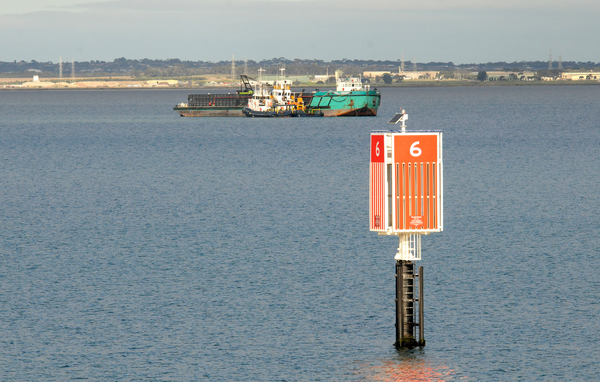“Toxic sludge” containing carcinogenic metal has contaminated Corio Bay from disused pipes at a North Shore fertiliser company, costing a $120,000 fine.
A Geelong magistrate has also ordered Incitec Pivot to repay City Hall $18,000 in clean-up costs and another $8000 for the Environment Protection Authority’s (EPA) court expenses.
The company was convicted after pleading guilty to four breaches of the Environment Protection Act, the EPA said.
The sludge contained cadmium, a natural heavy metal and fertiliser impurity known to cause cancer. The first warning sign of the bay spill was a discovery of 9.6 tonnes of soil contaminated with the “highly corrosive” sludge at a North Shore fishing platform car park in May 2017, the EPA said.
“It was initially believed the material had been illegally dumped until another incident on 19 June 2017 when Incitec determined that the industrial waste water was bubbling up through a former seawater cooling system, which the company had thought was decommissioned.”
“Incitec was required to remove approximately 60sqm from the car park and 80sqm from the seabed of Corio Bay. The substance was highly corrosive with a pH level between 1 and 2, and concentrations of cadmium in the sediment were in excess of the environmental guidelines required to maintain healthy aquatic life.
“Incitec has since plugged the pipes, which were used in the manufacture of sulphuric acid, revegetated the embankment area with native plants and improved its practices to reduce the risk of further discharges.”
The fine against Incitec reflected the seriousness of the offending, said EPA chief Dr Cathy Wilkinson.
“Out of sight is not out of mind,” she said.
“If Incitec had properly decommissioned the seawater cooling system at the time these incidents would never have happened.
“EPA and the community are working to not just maintain but improve the health of our environment for future generation and we expect all licence-holders to do the same.”
Incitec had four prior court matters from 2001, 2002 and 2003, Dr Wilkinson said.
“This offending was around the time when the seawater cooling system was decommissioned in 2004, so environmental protection should have been front of mind.
“All companies should ensure they have a thorough and regular program of maintenance so any issues like this are identified as soon as possible.”









